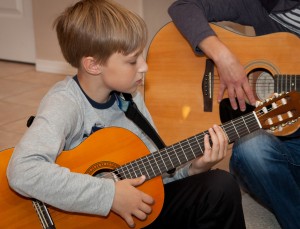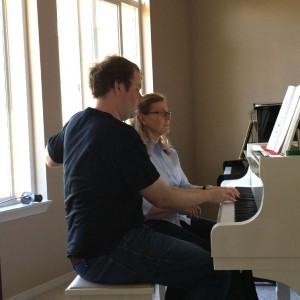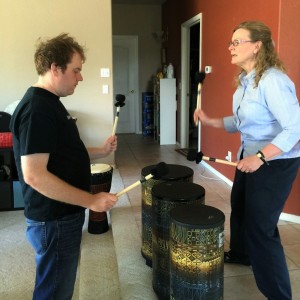
Adapted guitar lessons build multiple skills: gross and fine motor, social, tolerating changes of routine, and learning a fun skill! Photo by Christine Buffalow, used by permission.
From the moment our children are born (and even before!), we are driven by desires to know they will be OK. When they are not “typical” we embark on the sometimes long journey to help them achieve as much as possible. In our current educational system we strongly support learning during the “formative years”. Music therapy can help special needs children achieve their goals whether through working adjunctly within the school system or outside the school setting. Working hard on reaching goals during these years is excellent.

Connecting through shared music-making
But what follows if our child has not achieved self-sufficiency by the time they “age out” of the educational system? It is my desire to help those who are “non-typical” to keep growing throughout life using music to stimulate the brain, to express emotions, to train muscles, to promote continued learning of life skills, and to encourage positive social interactions and communication.

Drums! Pathways to communication.
What would a music therapy session look like? Following a greeting time that can serve as a check-in (“how are you doing?”), clients have opportunity to engage in musical activities that promote self-esteem, encourage appropriate social interactions, increase strengths and support movement. Improvisation will likely be encouraged during a session; this is the process whereby someone uses their voice and/or instruments to create something new and unique, giving expression to their inner self. The general goal of sessions is to maximize the person’s sense of what they CAN do. More specific individualized goals are addressed as well, even in group settings. At the close of each session, a good-bye song is typically sung to signal closure.